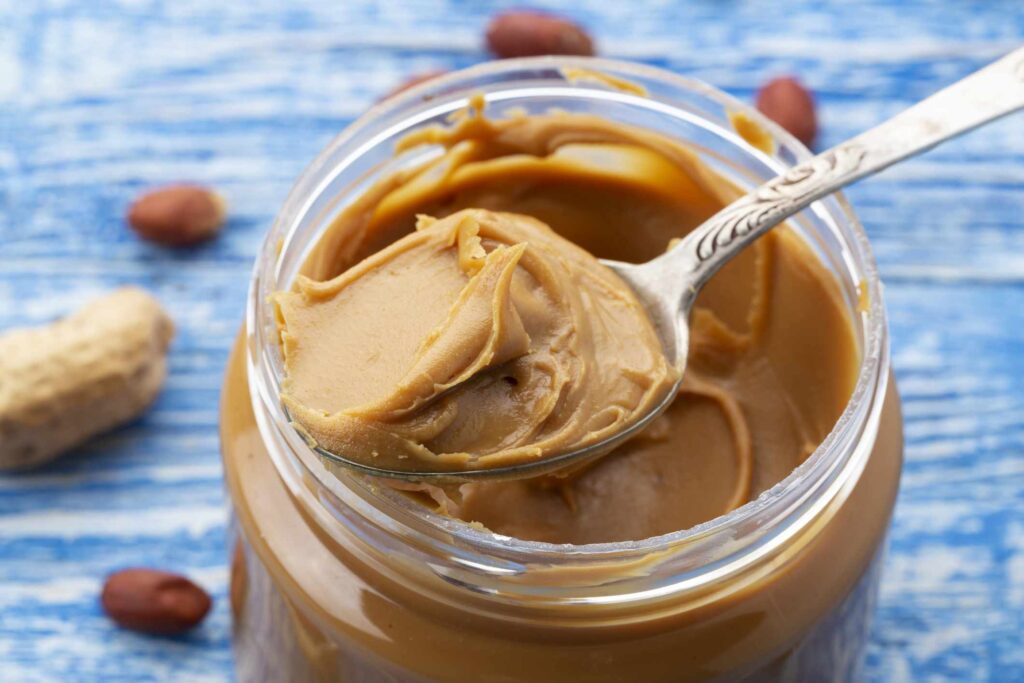From sandwiches to smoothies, peanut butter is a tasty and popular type of nut butter. But how healthy is it actually? And are there healthier options?
Rich in nutrients and healthy fats, peanut butter is a nourishing food that contains vitamins such as biotin, folate, and vitamin E, and minerals such as magnesium and potassium. At about 90 calories per tablespoon, peanut butter makes a delicious addition to a meal, snack, or recipe.
To uncover what makes a peanut butter “the best,” Health asked three registered dietitians (RDs) and registered dietitian-nutritionists (RDNs) to name their top pick.
Read more below to find out what they recommend.
The top peanut butter pick among the three experts we spoke to is unsweetened peanut butter.
In particular, unsweetened, plain crunchy peanut butter is the top pick of Keri Gans, MS, RDN, author of The Small Change Diet and host of The Keri Report podcast.
Natural, unsweetened peanut butter is the favorite of Kristen Smith, MS, RDN, a spokesperson for the Academy of Nutrition and Dietetics.
Debbie Petitpain, MBA, RDN, spokesperson for the Academy of Nutrition and Dietetics, told Health her top pick is unsweetened peanut butter made from just peanuts, or peanuts and a small amount of salt.
Why They Love It
- “I love the crunch because it adds texture, and the simple ingredients provide heart-healthy fats and plant-based protein that support overall wellness,” said Gans.
- “It contains the fewest ingredients—typically just peanuts, or peanuts and salt,” said Smith. “It’s free from added sugar, excess salt, and hydrogenated oils, making it minimally processed and rich in nutrients.”
- “This simple version retains heart-healthy fats and protein,” said Petitpain. “Both creamy and crunchy varieties and organic and non-organic are nutritious—choose whichever you prefer.”
Peanut butter is a great source of vitamins, minerals, protein, and fiber. It’s also rich in heart-healthy monounsaturated fats, which help reduce “bad” LDL cholesterol levels in the blood. In turn, having lower cholesterol lowers your risk of heart disease and stroke.
It also contains vitamin E, an antioxidant vitamin that helps boost the immune system from viruses and bacteria. Vitamin E also helps form red blood cells and widens blood vessels, which prevents blood clots.
Peanut butter is also a good source of magnesium, a mineral that’s essential for energy and protein production, normal muscle and nerve function, heart health, and supporting bone strength.
With its rich, nutty, and slightly salty flavor, there are many ways to enjoy peanut butter:
- Add it to recipes such as protein balls, sauces, salad dressings, and smoothies
- Use it as a topping on whole-grain toast or oatmeal
- Pair a tablespoon of peanut butter with a piece of fruit, such as an apple or banana
- Stir it into chia pudding or Greek yogurt
“When choosing a brand, aim for those with the shortest ingredient list—ideally just peanuts or peanuts and salt,” said Smith. “Keep in mind that natural peanut butter often has oil separation at the top, which requires stirring before use.”
To determine what makes a peanut butter ‘the best’, the following criteria was taken into consideration:
- Nutrient content: The best type of peanut butter should be naturally rich in nutrients that are beneficial for overall health. When it comes to nourishment, peanut butter delivers a stellar nutrient profile, including vitamins, minerals, heart-healthy fats, protein, and fiber.
- Added sugars: The healthiest peanut butter should have no added sugar or sweeteners. When consumed in excess or for long periods of time, added sugars increase the risk of chronic diseases such as cardiovascular disease, type 2 diabetes, obesity, and cancer.
- Salt content: Excess sodium is linked to high blood pressure, which can lead to heart disease and an increased risk of death. To keep blood pressure at a healthy level, skip the excess sodium and opt for a peanut butter with no salt or low levels of added salt.
- Oils: The best type of peanut butter should also be free of fully hydrogenated vegetable oil or palm oil, which act as stabilizers to prevent natural peanut oil from separating. However, peanut butter already contains natural oils, plus hydrogenated and palm oils add excess saturated fat, which should be limited in your diet. (Peanut butter naturally contains some saturated fat, but in a lower ratio to the higher amounts of heart-healthy unsaturated fats it contains.) To choose the healthiest option, it’s best to skip added oils when shopping for peanut butter.
Unsweetened peanut butter was the top pick of the three dietitians we spoke to, although the exact type varied according to their individual preferences (which included crunchy and natural varieties of peanut butter).
Peanut butter is a nutritious option that’s a good source of vitamins (such as vitamin E and folate), minerals (such as magnesium), fiber, protein, and heart-healthy fats.
To ensure you’re buying the best option, the experts we spoke to recommend skipping the sugar, excess salt, and added oils.


